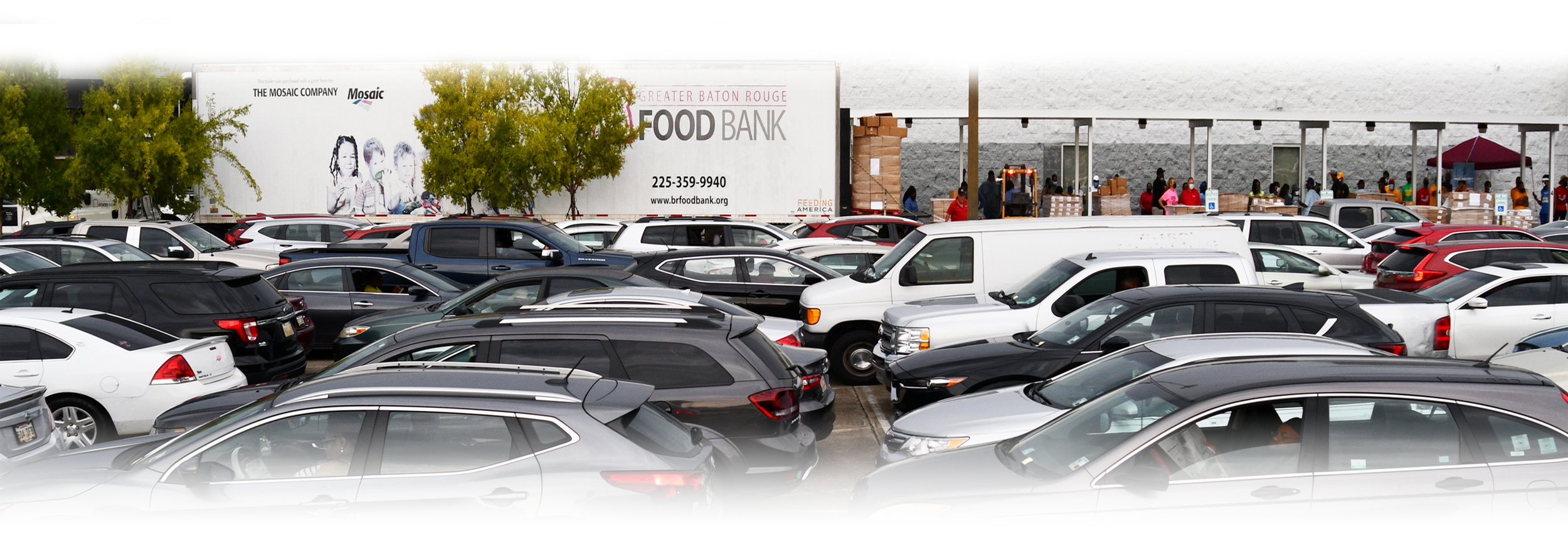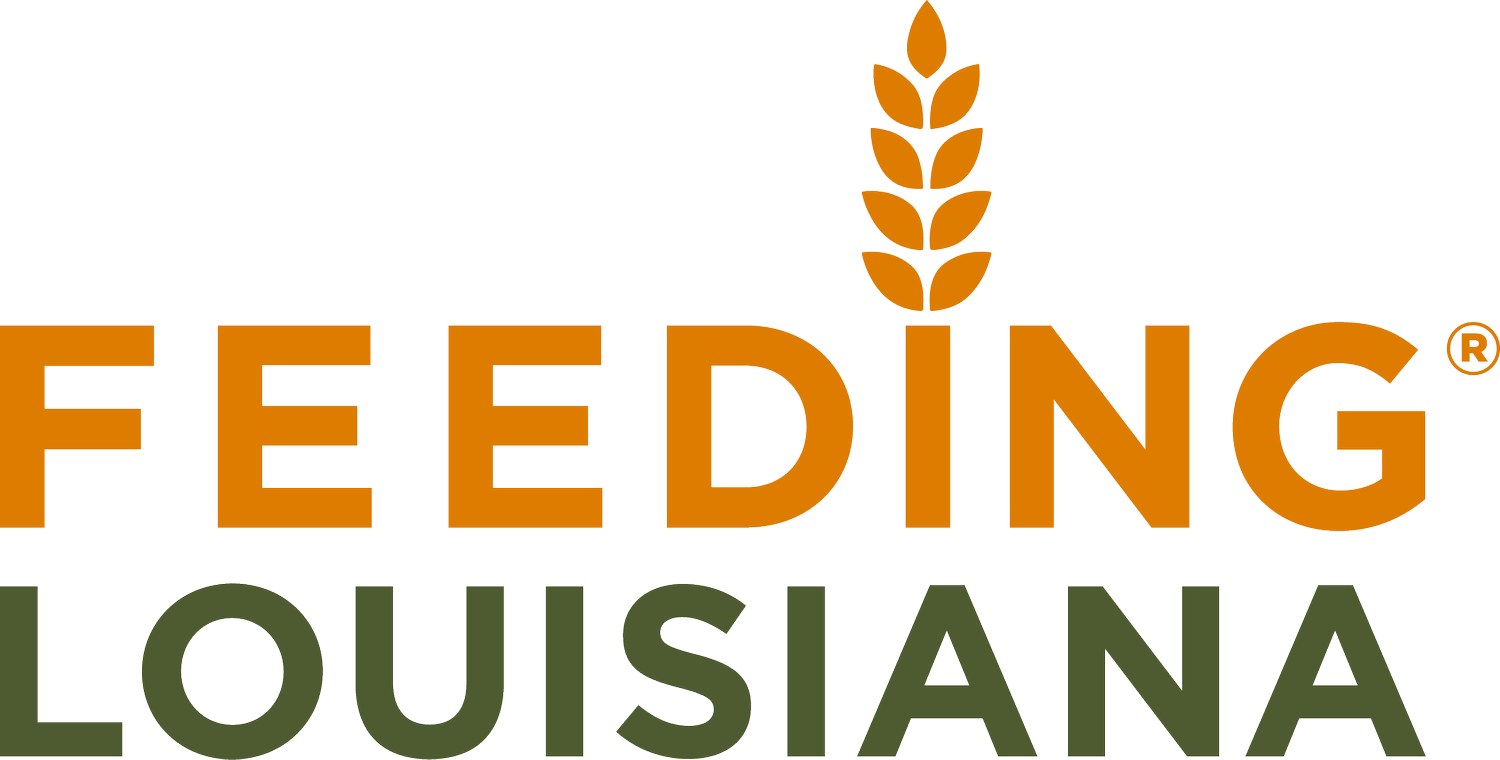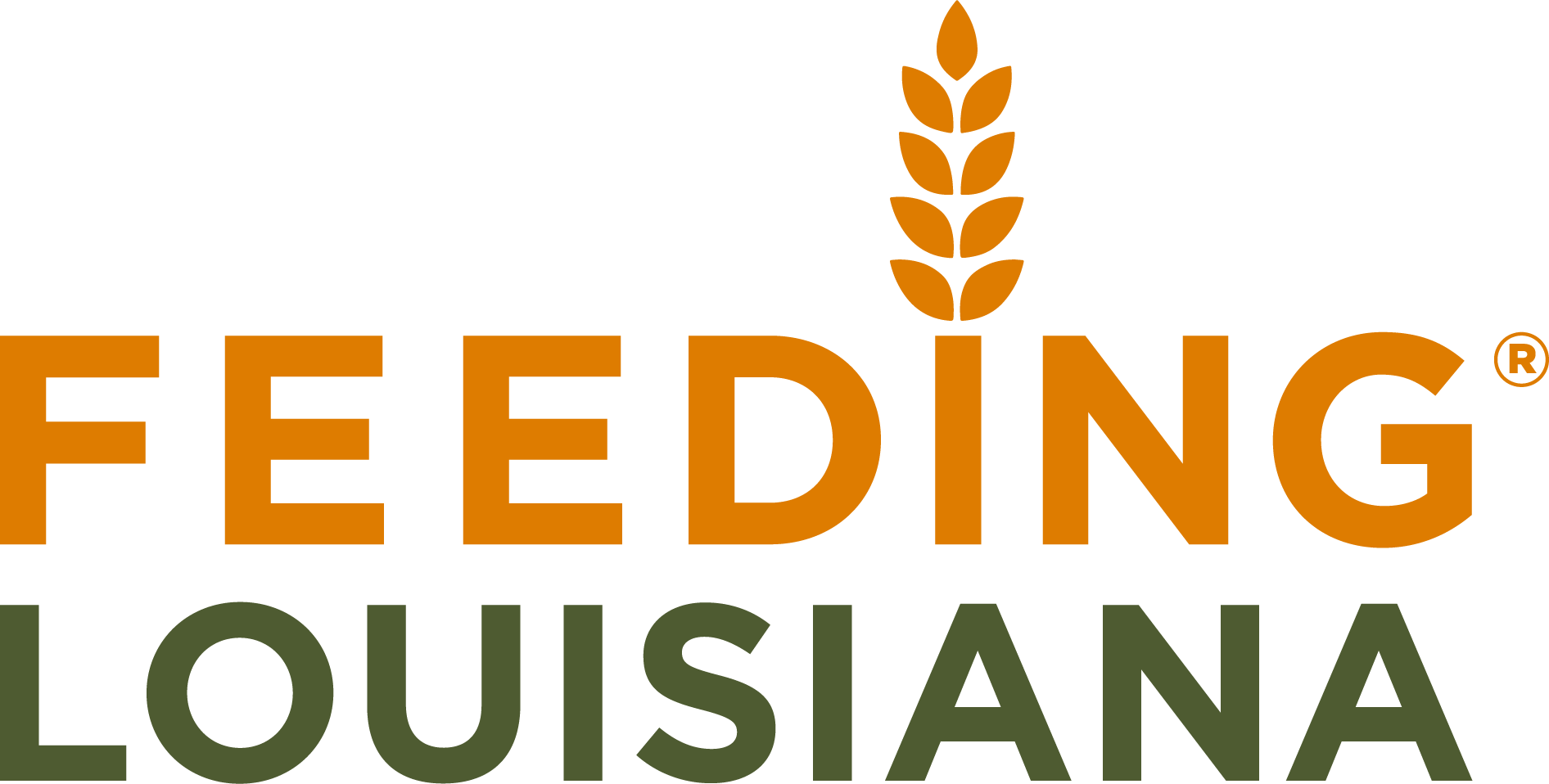Hunger in Louisiana
When our communities have enough to eat, they prosper.

An estimated 827,690 people in Louisiana live with food insecurity.
248,630 of those people are children.
Children are hit hardest. Statewide, about 1 in 5 kids lives in a food-insecure household, and some parishes rank among the most impacted in the nation—East Carroll Parish approaches 48% child food insecurity in the latest Map the Meal Gap analysis.
Older adults face a quiet crisis. Roughly 14% of Louisiana seniors (60+) are food insecure—the highest rate among states in recent estimates.
To put the scale in perspective, more Louisianans struggle with hunger than the combined populations of New Orleans, Baton Rouge, Shreveport, and Monroe (≈806,808 people, 2024–2025 estimates).

Regularly having enough healthy food to eat changes lives.
Education
Children have better outcomes as they grow older.
Food-secure children tend to perform better academically, have better health, and have a greater chance of achieving financial independence and overall well-being in life
Health
The average health cost is lower for those with food security.
Studies of mixed populations have shown food-secure individuals to have lower levels of chronic conditions, better mental health, and fewer hospitalizations.
Productivity
Regular food helps people lead more productive lives.
Less time worrying about meeting basic needs means individuals have more time to positively contribute to their community and improve upon their own life.
Stability
Food security enables economic advancement and societal growth.
Food security in our communities can serve as a foundation for individuals and families to lift themselves out of poverty and help bring stability to local economies.
NO ONE CHOOSES TO BE HUNGRY
The Effects of Hunger on Society
Hunger plays a significant role in how our communities function and develop.
When individuals and households, especially those with children, are food-insecure, it sharply limits their ability to focus on anything other than meeting basic needs.
In the long term, hunger harms the local economy as it hinders a person’s full potential to lead a more productive life and contributes to higher healthcare costs.

OUR NEIGHBORS
The Many Faces of Hunger in Louisiana
The hardships of hunger and lack of access to food affect all types of people throughout our state.
ALICE Households
An estimated 562,522 Louisiana households are considered ALICE¹.
For a growing number of households in our state, financial stability is becoming more out of reach.
Households classified as ALICE - Asset Limited, Income Constrained, Employed - earn above the Federal Poverty Level yet still struggle to afford basic expenses.
ALICE households are common in our state, including the challenges they face²:
Working two or more jobs and still cannot pay bills
Containing family members who need special care and assistance
Paid wages that do not keep up with the rising cost of goods and services
Living paycheck to paycheck and forced to make impossible choices: pay rent or buy food, receive medical care or pay for child care, pay utility bills or put gas in the car
Child Hunger
Over 248,630 children in Louisiana experience food insecurity¹.
Food insecurity in households with children remains a serious problem for our state with Louisiana ranking 3rd for child poverty in the US².
With poverty being a driving force of hunger for families, it’s estimated more than 285,000 Louisiana children live in impoverished households, including 146,000 in deep poverty².
Widespread hunger is leaving a significant amount of our children at risk of being sick more often, having higher toxic stress, and suffering from physical, developmental, and cognitive impairments, resulting in lower academic achievement than that of their peers³.
Senior Hunger
Louisiana ranks 3rd in the nation for senior hunger¹.
More than 13% of all Louisiana seniors aged 60 and older struggle to put food on the table¹.
Facing a largely quiet struggle, seniors experiencing food insecurity suffer a harsh toll on their health and nutrition. When our seniors' unique nutritional needs are not met, they face a higher risk of chronic conditions, including diabetes, high blood pressure, asthma, and poor mental health¹.
As our population continues to age and health costs increase, the number of seniors facing hunger is only expected to grow in Louisiana.
Communities of Color
Communities of color disproportionately experience food insecurity at higher rates around the country and in our state.
While food insecurity affects all communities, for communities of color, generations of systemic barriers have limited access to nutritious, affordable, foods throughout Louisiana.
Feeding Louisiana estimates that
26%
of Black households in the state experience food insecurity.
22%
of Hispanic households in the state experience food insecurity.
21%
of Asian households in the state experience food insecurity.
Rural Communities
Louisiana's rural communities are vital to the industry, food, and culture that define Louisiana.
However, despite playing a key role in the food and agriculture industries, rural communities face high rates of food insecurity.
People who live in rural Louisiana face hunger at higher rates, in part because of the unique challenges living remotely presents.
These challenges include an increased likelihood of food deserts with the nearest food pantry or food bank potentially hours away, job opportunities that are more concentrated in low-wage industries, and higher rates of unemployment and underemployment.
STRONGER TOGETHER
Feeding Hope
Our communities in Louisiana are made up of strong, resilient, hard-working people with ambitions of creating better lives for themselves and their families.
When we empower our neighbors with the resources needed to live a productive life, it not only impacts their situation, but leads to a happier, healthier Louisiana for all of us.

How do we tackle food insecurity?
Whether it's through volunteering, donating to our food banks, or advocating for policy change, there are countless ways that each and every one of us can make a difference.
See all the ways that you can make an impact today.
It Takes All of Us
Our food banks can’t do it alone. It takes a community to lift our neighbors up.
With your support, you are helping us cultivate a better future where everyone in Louisiana can put a meal on their table.
Our Mission
Working to solve local hunger.
We work together with Louisiana’s network of food banks, local partners, and government organizations to put forth creative solutions that offer immediate food assistance while striving for long-term, sustainable means to end hunger.









